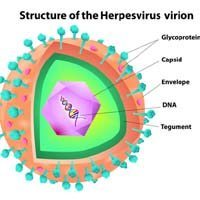How Asbestos Turns Healthy Cells into Mesothelioma Tumors
 Scientists are a step closer to understanding how malignant mesothelioma may take hold in the body thanks to new research from the University of Vermont.
Scientists are a step closer to understanding how malignant mesothelioma may take hold in the body thanks to new research from the University of Vermont.
A team of pathologists, biologists, and geneticists have released a report suggesting that exosomes, tiny vesicles secreted by cells, undergo dangerous changes when the cells encounter asbestos fibers.
According to the researchers, exosomes from asbestos-exposed cells can carry gene-altering cargo that may then go on to “infect” cells on the mesothelial membranes where mesothelioma tumors start.
Exosomes and Mesothelioma Risk
To test the theory that these exosomes may prompt changes that results in pleural mesothelioma, researchers focused on lung epithelial cells and macrophages (white blood cells). These are typically the first cells to come in contact with asbestos fibers when they are inhaled.
Just as the researchers hypothesized, asbestos exposure produced exosomes that had an abundance of certain proteins. When human mesothelial cells were exposed to these exosomes in the lab, their genes were changes.
“Exposure of human mesothelial cells to these exosomes resulted in gene expression changes related to epithelial-to-mesenchymal transition and other cancer-related genes,” writes author and pathologist Phillip Munson.
“This is the first report to indicate that asbestos-exposed cells secrete exosomes with differentially abundant proteins and that those exosomes have a gene-altering effect on mesothelial cells.”
One potential result of these findings is that exosomes with a certain protein profile could serve as biomarkers for mesothelioma, even before a patient develops mesothelioma symptoms.
Multi-Modality Treatment Still Best for Mesothelioma
Scientists have suspected since as early as the 1940s that the mineral asbestos, which used to be prevalent in new building products, could cause mesothelioma, but they did not know exactly how.
Today, although malignant mesothelioma is now known as the “asbestos cancer”, doctors still do not fully understand how it starts or how it spreads. As a result, there is still no cure for mesothelioma and no widely effective mesothelioma treatments, despite decades of research.
Lacking a single proven treatment, most newly-diagnosed mesothelioma patients are treated with a combination of therapies. These may include localized and/or systemic chemotherapy, radiation, radical or lung-sparing surgery and immunotherapy.
Of these, immunotherapy appears to have the most potential as an eventual cure for malignant mesothelioma since it focuses on altering the immune system to fight the disease from the inside out.
Sources:
Munson, P, et al, “Exosomes from asbestos-exposed cells modulate gene expression in mesothelial cells”, March 9, 2918, FASEB Journal, Epub ahead of print





